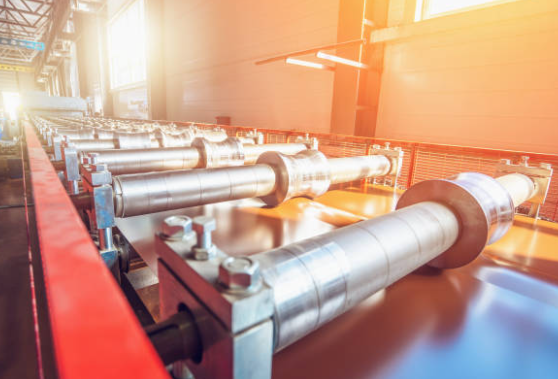Operating a roll forming business in Costa Rica involves navigating a variety of local regulations and standards that ensure environmental protection, worker safety, and operational efficiency. Understanding these regulations is crucial for compliance and for fostering sustainable business practices. Here’s a comprehensive overview of the regulatory landscape and best practices for roll forming operations in Costa Rica.
1. Environmental Regulations
Costa Rica is known for its commitment to environmental sustainability, and this extends to manufacturing operations, including roll forming. Here are key regulations and best practices to consider:
- Environmental Impact Assessment (EIA): Before starting any manufacturing operation, businesses must conduct an EIA to assess potential environmental impacts. This assessment is submitted to the National Environmental Technical Secretariat (SETENA) for approval. It is advisable to engage with environmental consultants to ensure thorough and compliant assessments.
- Waste Management Regulations: The management of industrial waste is strictly regulated. Roll forming businesses should implement a waste reduction plan, focusing on recycling metal scraps and minimizing waste generation. Following the guidelines set by the Ministry of Health and the Ministry of Environment and Energy (MINAE) is essential for compliance.
- Water Usage and Treatment: Regulations govern water usage and the discharge of wastewater. Roll forming operations must ensure that water usage is efficient and that any wastewater produced is treated according to national standards before being released back into the environment.
2. Safety Protocols
Worker safety is paramount in any manufacturing environment. In Costa Rica, businesses must adhere to regulations set by the Costa Rican Social Security Fund (CCSS) and the Ministry of Labor and Social Security. Here are important aspects to consider:
- Occupational Safety and Health Standards: Companies must develop and implement a comprehensive Occupational Safety and Health (OSH) program that includes risk assessments, safety training, and emergency response plans. Regular safety drills and training sessions should be conducted to keep employees informed about safety protocols.
- Personal Protective Equipment (PPE): Providing appropriate PPE such as gloves, helmets, goggles, and hearing protection is mandatory. Regular inspections and maintenance of PPE should also be conducted to ensure effectiveness.
- Equipment Safety Standards: All machinery, including roll forming machines, must meet safety standards outlined by local regulations. Regular maintenance and inspections should be performed to prevent accidents and ensure compliance with safety protocols.
3. Labor Laws and Employment Regulations
Costa Rica has robust labor laws aimed at protecting workers’ rights. Understanding these laws is crucial for maintaining a compliant and ethical workplace:
- Employee Rights: Familiarize yourself with local labor laws concerning wages, working hours, and employee benefits. Employers must adhere to regulations regarding overtime pay and mandatory rest periods.
- Training and Development: Providing training opportunities for employees is encouraged and may be regulated. Investing in training not only complies with local laws but also enhances employee skills and productivity.
- Union Regulations: Costa Rica recognizes the right to organize and engage in collective bargaining. Businesses should be prepared to work with labor unions and respect employee rights to join unions.
4. Building and Zoning Regulations
When establishing a roll forming facility, businesses must comply with local building codes and zoning regulations:
- Construction Permits: Before beginning construction, securing the necessary permits from local municipalities is essential. This may involve presenting architectural plans and ensuring compliance with zoning regulations.
- Zoning Laws: Familiarize yourself with local zoning laws to ensure that the location of your roll forming operation is compliant. Certain areas may be designated for industrial use, while others may have restrictions.
Best Practices for Compliance
- Stay Informed: Regularly review updates to local regulations and standards. Engaging with local industry associations can provide valuable insights and networking opportunities.
- Consult with Experts: Consider hiring legal and environmental consultants who specialize in Costa Rican regulations. Their expertise can help navigate the complexities of compliance and avoid costly fines.
- Implement Internal Audits: Regular internal audits can help ensure adherence to safety and environmental regulations. This proactive approach can identify potential compliance issues before they become serious problems.
- Engage with the Community: Building positive relationships with local communities and stakeholders can enhance your company’s reputation and foster goodwill, making it easier to navigate regulatory challenges.
By understanding and complying with Costa Rica’s regulatory landscape, roll forming businesses can operate effectively while contributing to environmental sustainability and ensuring the safety and well-being of their employees. Emphasizing best practices in compliance not only minimizes risks but also promotes a culture of responsibility and accountability within the organization.




